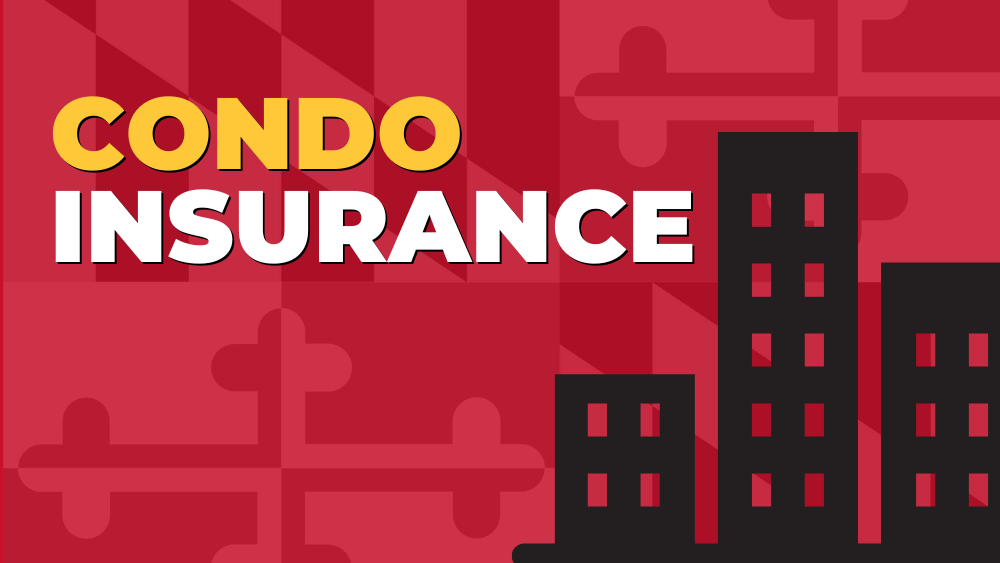
Learn the Basics of Condominium Insurance (En Español, 한국어)
What types of insurance coverage is there for a condominium?
Condominium owners and their units are typically covered by two different types of insurance. The first is the master policy. Maryland law requires your Condominium Association or Homeowner’s Association to obtain this policy. The cost of the policy is a common expense of the Association.
- The master policy provides coverage for the structures and common areas against risks of direct physical loss commonly insured against. The policy has a deductible like a homeowners policy in an amount typically chosen by the Association. In certain instances, a deductible for a specific type of claim (such as wind damage) may be required by the insurer. The deductible expense for a claim is a common expense of the Association. The policyholder should discuss deductible options and requirements with the insurer or insurance producer (agent). The master policy provides protection for damage resulting from covered perils to the basic structure of your unit. This includes the walls, floors and fixtures that were included in the original construction of the unit including carpeting and kitchen cabinets. The master policy also provides liability coverage to protect the Association against legal liability for injury to others or damage to the property of others, as a result of a covered occurrence. This coverage requires the insurance company to pay the attorney costs to defend the Association and the indemnity cost for the damages of the injured party up to the policy’s limit, subject to the policy’s terms and conditions.
The second type of insurance is the unit owner’s policy that is purchased by the individual unit owner. This policy also provides both property damage and liability coverage for the individual condominium unit’s owner. Maryland law permits the Association to require each unit owner to purchase a unit owner’s policy. This policy will also have a deductible. Most deductibles are chosen by the policyholder, but in certain instances a deductible for a specific type of claim (such as wind damage) may be required by the insurer. The policyholder should discuss deductible options and requirements with the insurer or insurance producer (agent).
- The unit owner’s policy is purchased by the unit owner and provides coverage for their contents and personal belongings, additions, alterations and betterments, liability coverage and additional living expenses following a covered loss. The policy may also provide coverage, subject to certain terms and monetary limits, for a unit owner’s share of a common area claim if it exceeds the master policy limits or is less than the master policy’s deductible. This coverage is known as loss assessment coverage. Consult with your insurance company or agent to determine how much loss assessment coverage is included with your policy and whether or not you wish to purchase more.
What is covered by each type of insurance policy?
Additions, alterations and betterments include upgrades made by the unit owner post- construction. This may include such things as upgraded flooring, built-ins like bookcases, upgraded kitchen or bathroom cabinets, etc. If there is a covered loss, the master policy will generally only pay to replace or repair damage for the unit as it was originally built, and the unit owner’s policy will pay the additional cost needed to return the unit to its pre-loss condition.
When a loss occurs that originated from a condition in a single condominium unit, but that is covered by the master policy, the owner of the unit where the loss originated may be assessed by the Association up to $10,000 (effective 10.1.2020) of the master policy deductible expense. However, if a loss occurs that originated from the common elements rather than from one individual unit, Maryland law provides that the master policy deductible is a common expense of the Association. A unit owner should ask the insurer or insurance producer if the policy’s loss assessment coverage will apply to an assessment for the Association’s master policy deductible expense.
Please note, as outlined in the Maryland Insurance Administration Bulletin 9-22, each unit owner is an insured under the master policy and may make a claim for a covered loss under the master policy. Such a claim cannot be blocked by the management company. While a management company may act as a conduit for claims being made under the master policy, it cannot refuse to present a claim for a unit owner.
Condominiums
- What is Condominium Insurance and How Does it Work?: Webinar
- Condominium insurance tips from the MIA: Video